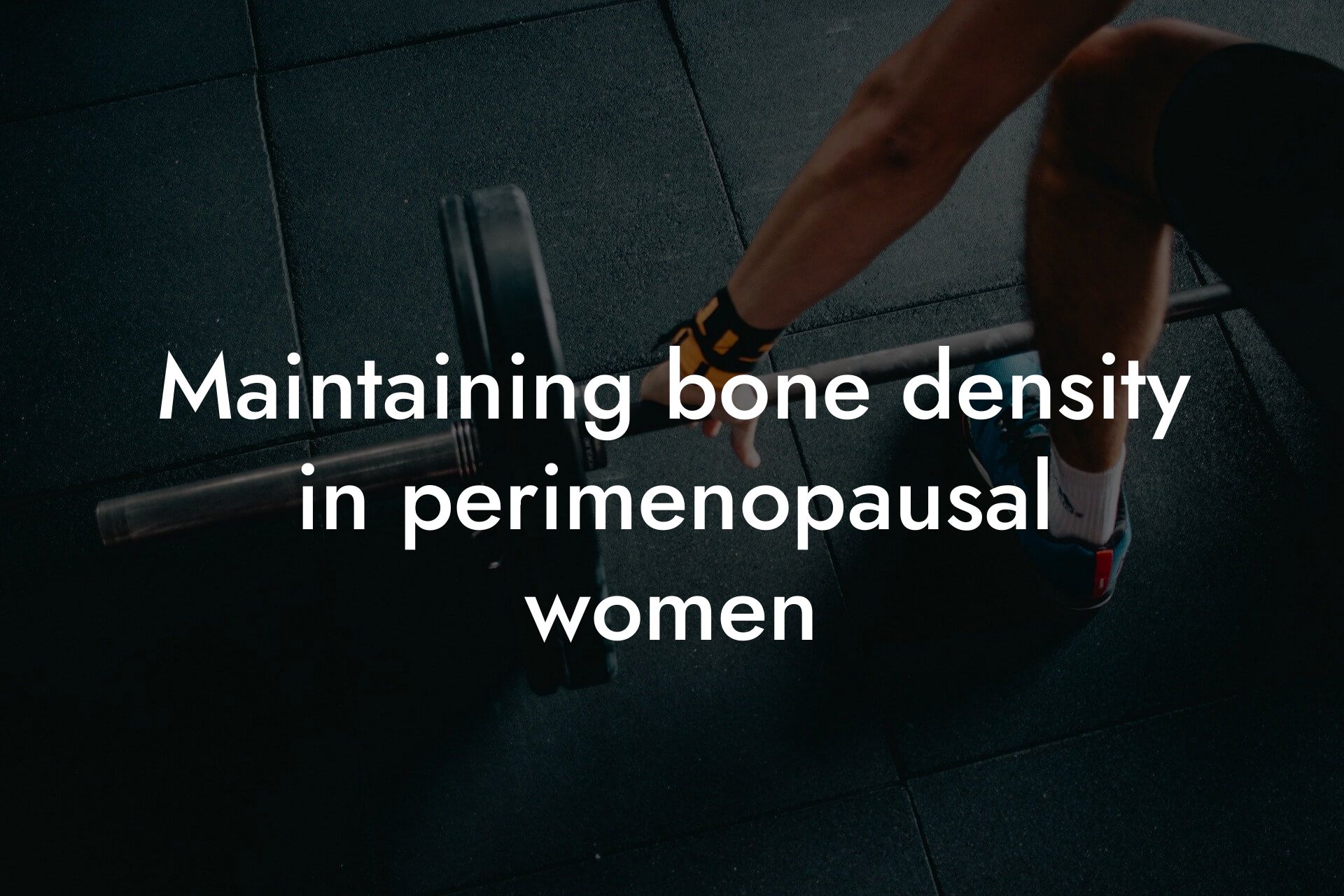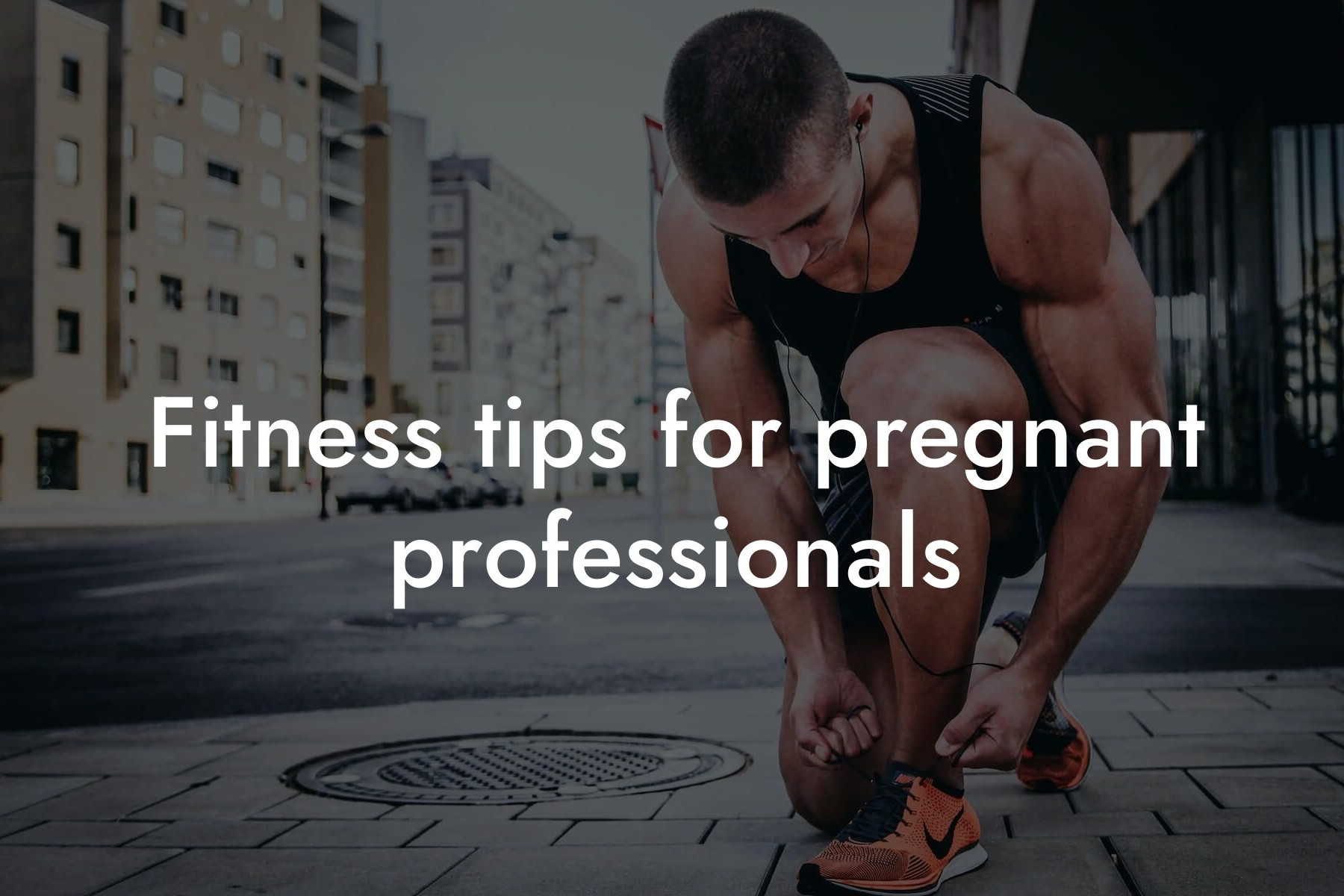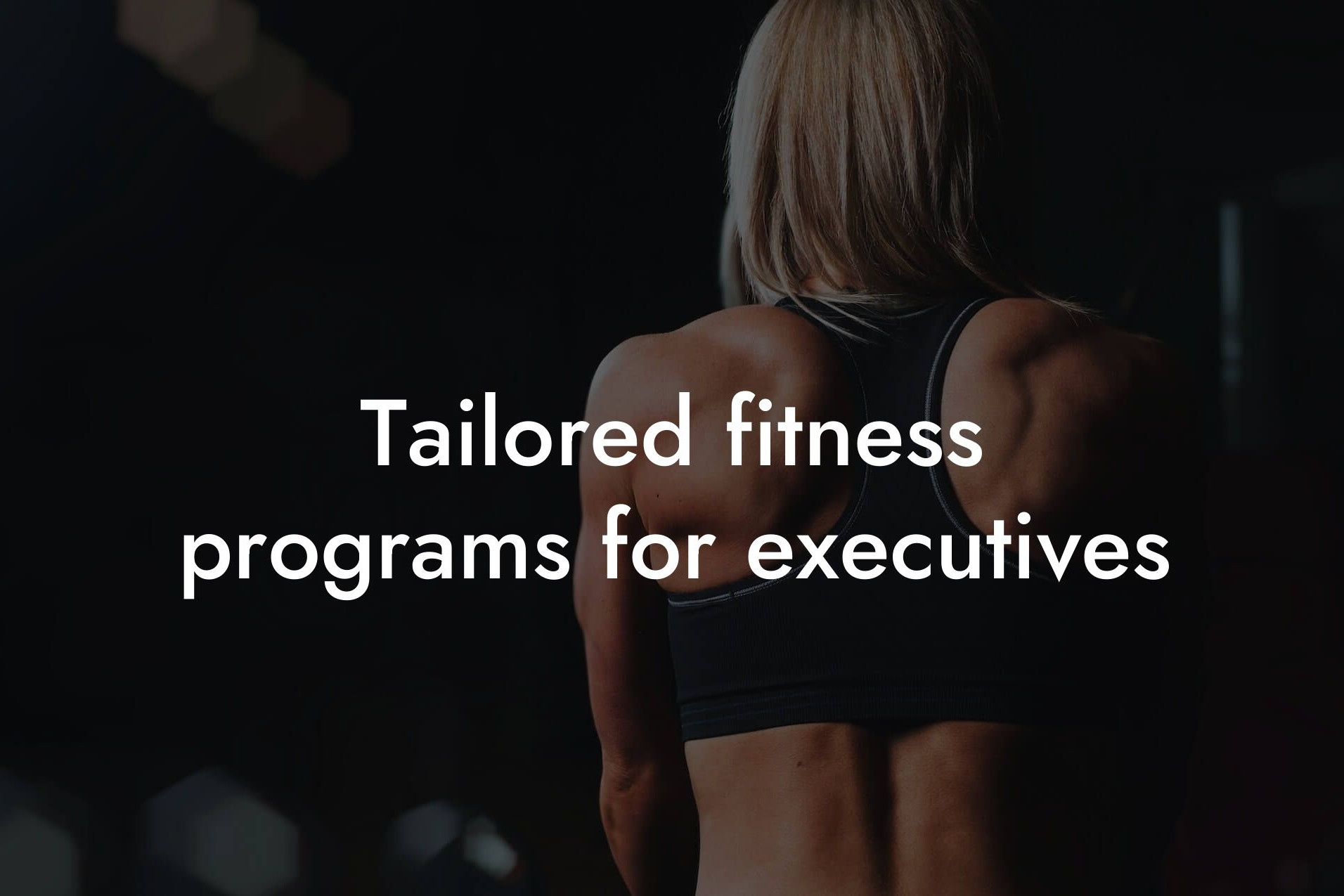As a high-earning professional, taking care of your physical appearance and overall health is crucial for maintaining peak performance in both your personal and professional life. For vegetarian athletes, achieving optimal body composition can be a bit more challenging due to the potential limitations of a plant-based diet. However, with the right knowledge and strategies, it's entirely possible to thrive as a vegetarian athlete. In this article, we'll delve into the key body composition considerations for vegetarian athletes, providing you with a comprehensive guide to help you optimize your physique and performance.
Table of Contents
The Importance of Body Composition for Athletes
Body composition refers to the percentage of fat mass and lean mass in the body. For athletes, body composition is critical as it directly impacts performance. Excess body fat can hinder speed, agility, and endurance, while lean muscle mass is essential for generating power and strength. As a vegetarian athlete, it's essential to maintain a healthy balance between fat mass and lean mass to optimize your performance.
Challenges of a Vegetarian Diet for Athletes
A well-planned vegetarian diet can provide all the necessary nutrients for optimal athletic performance. However, there are some potential challenges to consider. Vegetarian athletes may struggle to consume sufficient protein, creatine, and branched-chain amino acids (BCAAs), which are essential for muscle growth and repair. Additionally, plant-based sources of omega-3 fatty acids, vitamin B12, and iron may not be as easily absorbed by the body as their animal-based counterparts.
Key Nutrients for Vegetarian Athletes
To overcome the potential challenges of a vegetarian diet, it's essential to focus on consuming key nutrients that support athletic performance. These include:
Protein: Aim to consume 1.2-1.6 grams of protein per kilogram of body weight from sources like legumes, beans, lentils, tofu, tempeh, and seitan.
Creatine: Include creatine-rich plant-based sources like beans, lentils, and peas in your diet, or consider supplementing with creatine monohydrate.
BCAAs: Focus on consuming BCAA-rich plant-based sources like beans, lentils, and peas, or consider supplementing with BCAA powder.
Omega-3 fatty acids: Include sources like flaxseeds, chia seeds, walnuts, and canola oil in your diet, or consider supplementing with algal oil.
Vitamin B12: Consume vitamin B12-fortified plant-based milk and cereals, or consider supplementing with vitamin B12 tablets or injections.
Iron: Include iron-rich plant-based sources like beans, lentils, and dark leafy greens in your diet, and consider supplementing with iron tablets or injections if necessary.
Macronutrient Ratios for Vegetarian Athletes
As a vegetarian athlete, it's essential to strike the right balance between carbohydrates, protein, and fat to support optimal performance. Aim for the following macronutrient ratios:
Carbohydrates: 55-65% of daily calories from sources like whole grains, fruits, and vegetables.
Protein: 15-20% of daily calories from sources like legumes, beans, lentils, tofu, tempeh, and seitan.
Fat: 20-25% of daily calories from sources like nuts, seeds, avocados, and olive oil.
Body Composition Analysis for Vegetarian Athletes
Regular body composition analysis is crucial for vegetarian athletes to ensure they're meeting their performance goals. At Tano Performance Group, we use Dual-Energy X-ray Absorptiometry (DEXA) scans to provide a comprehensive body composition analysis. This non-invasive, pain-free test provides detailed information on body fat percentage, lean mass, bone density, and more. With this data, you can tailor your diet and training program to optimize your physique and performance.
Training Considerations for Vegetarian Athletes
In addition to a well-planned diet, a structured training program is essential for achieving optimal body composition as a vegetarian athlete. Focus on a periodized training program that includes a mix of cardio, strength training, and high-intensity interval training (HIIT) to improve muscle growth and endurance. Additionally, incorporate rest and recovery days to allow your body to adapt and rebuild.
As a vegetarian athlete, achieving optimal body composition requires careful planning and attention to detail. By focusing on key nutrients, macronutrient ratios, and regular body composition analysis, you can optimize your physique and performance. Remember to stay hydrated, listen to your body, and make adjustments as needed. With the right knowledge and strategies, you can thrive as a vegetarian athlete and take your performance to the next level.
Frequently Asked Questions
What are the benefits of a vegetarian diet for athletes?
A well-planned vegetarian diet can provide numerous benefits for athletes, including improved cardiovascular health, enhanced endurance, and faster recovery times. Vegetarian diets tend to be high in fiber, vitamins, and minerals, which can help support overall health and performance.
Do vegetarian athletes need to worry about protein deficiency?
While it's true that vegetarian diets can be lower in protein, it's not necessarily a cause for concern. With proper planning, vegetarian athletes can easily meet their protein needs through plant-based sources like legumes, beans, lentils, tofu, and tempeh. Additionally, many vegetarian protein powders are available to support muscle growth and repair.
How can vegetarian athletes ensure they're getting enough iron?
Iron is an essential nutrient for athletes, and vegetarian diets can be lower in iron. However, there are many plant-based sources of iron, including dark leafy greens, beans, lentils, and fortified cereals. Vegetarian athletes can also consider taking an iron supplement or consuming vitamin C-rich foods to enhance iron absorption.
What are some good sources of omega-3 fatty acids for vegetarian athletes?
While fish is a common source of omega-3s, vegetarian athletes can get their omega-3s from plant-based sources like flaxseeds, chia seeds, walnuts, and canola oil. Additionally, many vegetarian omega-3 supplements are available, often derived from algal oil.
Can a vegetarian diet support muscle growth and repair?
Absolutely! With proper planning, a vegetarian diet can provide all the necessary nutrients for muscle growth and repair. Vegetarian athletes should focus on consuming adequate protein, creatine, and beta-alanine from plant-based sources, and consider supplementing with vegetarian protein powders and creatine if necessary.
How can vegetarian athletes ensure they're getting enough vitamin B12?
Vitamin B12 is an essential nutrient that's often found in animal products. However, vegetarian athletes can get their vitamin B12 from plant-based sources like fortified cereals, plant-based milk, and nutritional yeast. Additionally, many vegetarian vitamin supplements contain vitamin B12.
What are some common nutrient deficiencies in vegetarian athletes?
Common nutrient deficiencies in vegetarian athletes include vitamin B12, iron, omega-3 fatty acids, and creatine. However, with proper planning and supplementation, these deficiencies can be easily avoided.
How can vegetarian athletes support their bone health?
Vegetarian athletes can support their bone health by consuming adequate calcium and vitamin D from plant-based sources like fortified plant-based milk, dark leafy greens, and sunlight exposure. Additionally, many vegetarian calcium supplements are available.
Can a vegetarian diet support high-intensity training?
A well-planned vegetarian diet can provide all the necessary nutrients for high-intensity training. Vegetarian athletes should focus on consuming adequate complex carbohydrates, protein, and healthy fats to support energy production and recovery.
How can vegetarian athletes manage their body composition?
Vegetarian athletes can manage their body composition by focusing on a balanced diet, staying hydrated, and incorporating regular strength training and cardiovascular exercise into their routine. Additionally, many vegetarian supplements are available to support weight loss and muscle gain.
What are some common misconceptions about vegetarian athletes?
Common misconceptions about vegetarian athletes include the idea that they're protein-deficient, weak, or lacking in energy. However, with proper planning and training, vegetarian athletes can be just as strong and successful as their meat-eating counterparts.
How can vegetarian athletes support their immune function?
Vegetarian athletes can support their immune function by consuming adequate vitamin C, vitamin E, and beta-carotene from plant-based sources like fruits, vegetables, and nuts. Additionally, many vegetarian immune-boosting supplements are available.
Can a vegetarian diet support endurance athletes?
Absolutely! A well-planned vegetarian diet can provide all the necessary nutrients for endurance athletes, including complex carbohydrates, protein, and healthy fats. Vegetarian endurance athletes should focus on consuming adequate iron, omega-3s, and antioxidants to support performance and recovery.
How can vegetarian athletes manage their creatine levels?
Vegetarian athletes can manage their creatine levels by consuming adequate creatine from plant-based sources like beans, lentils, and nuts. Additionally, many vegetarian creatine supplements are available to support muscle growth and repair.
What are some good sources of probiotics for vegetarian athletes?
Vegetarian athletes can get their probiotics from plant-based sources like fermented soy products, kimchi, sauerkraut, and kefir. Additionally, many vegetarian probiotic supplements are available to support gut health and immune function.
Can a vegetarian diet support strength training?
Absolutely! A well-planned vegetarian diet can provide all the necessary nutrients for strength training, including protein, creatine, and beta-alanine from plant-based sources. Vegetarian strength trainers should focus on consuming adequate complex carbohydrates and healthy fats to support energy production and recovery.
How can vegetarian athletes support their mental health?
Vegetarian athletes can support their mental health by consuming adequate omega-3s, vitamin D, and complex carbohydrates from plant-based sources. Additionally, many vegetarian supplements are available to support mental health and well-being.
What are some common challenges faced by vegetarian athletes?
Common challenges faced by vegetarian athletes include ensuring adequate nutrient intake, managing social and cultural pressures, and finding vegetarian-friendly restaurants and meal options while traveling.
How can vegetarian athletes overcome social and cultural pressures?
Vegetarian athletes can overcome social and cultural pressures by educating themselves and others about the benefits of a vegetarian diet, seeking support from like-minded individuals, and being confident in their food choices.
What are some good vegetarian protein sources for athletes?
Good vegetarian protein sources for athletes include legumes, beans, lentils, tofu, tempeh, seitan, and vegetarian protein powders. These sources can provide all the necessary amino acids for muscle growth and repair.
Can a vegetarian diet support athletic performance?
Absolutely! A well-planned vegetarian diet can provide all the necessary nutrients for athletic performance, including complex carbohydrates, protein, and healthy fats. Vegetarian athletes should focus on consuming adequate iron, omega-3s, and antioxidants to support performance and recovery.
How can vegetarian athletes stay hydrated?
Vegetarian athletes can stay hydrated by consuming adequate water, electrolyte-rich beverages, and hydrating foods like watermelon and cucumbers. Additionally, many vegetarian electrolyte supplements are available to support hydration and performance.
What are some good vegetarian meal options for athletes?
Good vegetarian meal options for athletes include veggie burgers, lentil soup, quinoa salads, stir-fries with tofu and vegetables, and smoothies with vegetarian protein powder and fruit. These meals can provide all the necessary nutrients for athletic performance and recovery.
Here are some related articles you might love...
- Maintaining bone density in perimenopausal women
- Fitness tips for pregnant professionals
- Tailored fitness programs for executives
- The unique challenges of maintaining fitness in high-stress jobs
- How cultural differences impact body composition goals
- How to manage body composition after childbirth
- Fitness and nutrition strategies for shift workers
- Body composition strategies for women in leadership
- Fitness programs for older professionals
Zak Faulkner
Zak Faulkner is a leading authority in the realm of physical health and body composition analysis, with over 15 years of experience helping professionals optimise their fitness and well-being. As one the experts behind Tano Performance Group, Zak has dedicated his career to providing in-depth, science-backed insights that empower clients to elevate their physical performance and overall health.
With extensive knowledge of DEXA technology, Zak specializes in delivering comprehensive body assessments that offer precise data on body fat, muscle mass, bone density, and overall physique. His expertise enables individuals to make informed decisions and achieve their fitness goals with accuracy and confidence. Zak’s approach is rooted in a deep understanding of human physiology, combined with a passion for helping clients unlock their full potential through personalised strategies.
Over the years, Zak has earned a reputation for his commitment to excellence, precision, and client-focused service. His guidance is trusted by top professionals who demand the best when it comes to their health. Whether advising on fitness programs, nutritional strategies, or long-term wellness plans, Zak Faulkner’s insights are a valuable resource for anyone serious about taking their health and fitness to the next level.
At Tano Performance Group, Zak continues to lead our Content Team revolutionising how professionals approach their physical health, offering unparalleled expertise that drives real results.




